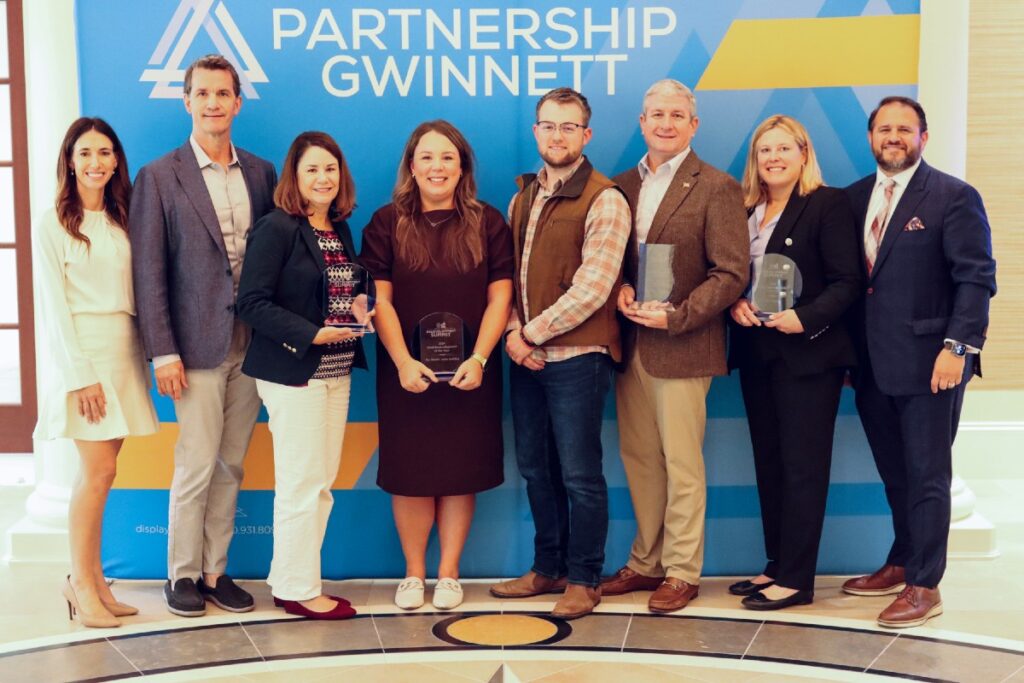Gwinnett Chairwoman Nicole Love Hendrickson issued a statement Wednesday on the failed transit referendum. The proposal lost by gaining only 46.55 percent approval of the voters against the 30-year sales tax. There were 217,007 “No” votes, and 188,977 “Yes” votes.
Her statement read:
“Since beginning my term in 2020, I have expressed the need for transit and mobility solutions in Gwinnett. Realizing previous referendum efforts, we went back to the drawing board to design a Transit Plan that addressed the mobility needs of residents, businesses, and stakeholders in Gwinnett. This plan was unanimously adopted by the Gwinnett County Board of Commissioners, and we moved to place the decision in the hands of Gwinnett County voters. Unfortunately, voters turned down the vote to fund expanded and enhanced transit in this way.
“Our county is growing, but our current transit system is limited. With more than a quarter million people projected to move to Gwinnett by 2050, we need solutions to ease congestion. Transit is also a crucial component of many plans and projects, including the 2045 Unified Plan, Rowen, Gwinnett Place Mall, and more. The county needs transit to remain innovative and preserve the high quality of life our residents have come to expect. Most importantly, we need to continue providing an essential service – ensuring residents who rely on public transportation have affordable and reliable transit options.
“While the Transit Plan will continue to serve as a framework for the future of transit in our county, we will seek and leverage potential funding from state, federal, and local sources as we continue to strive toward our goal of mobility for all.”
Another statement came from Emory Morsberger of the Gwinnett85 Community Improvement District. His statement read:
“While we are disappointed that the transit referendum did not pass, Gateway85 CID remains committed to enhancing mobility and accessibility within our community. We launched microtransit in cooperation with Gwinnett County and will continue to work on improved transportation options for our community members, many of which do not have access to a car.
“We will continue to work closely with local leaders, business partners and community members on initiatives that will enhance the quality of life for everyone in our district by focusing on practical and innovative projects.”
GGC professor talks of giving and saving green
The end of the year 2024 is less than two months away. Between holiday celebrations, many people are also thinking about donating to their favorite charitable organizations before Jan. 1, 2025.
Georgia Gwinnett College (GGC) Dr. Benjamin Akins, associate professor of legal studies and taxation, said there are tax implications at the end of the year for many people to consider, and donating cash or property to a non-profit organization to help reduce their tax bill might make sense.
Most people take the standard deduction allotted by the Internal Revenue Service (IRS) which is $14,600 for most single filers and $29,200 for most married couples who file together. Then there are those who are what Akins calls itemizers. “This group of people itemize their deductions because it exceeds the standard deduction allowed by the IRS,” he says. “By taking the time to itemize allowable deductions, they can claim a bigger deduction on their income and pay less in taxes.”
For those who itemize, they might consider increasing their charitable giving to offset bumps in their household income.
One scenario of people experiencing an increase in income involves senior citizens. He adds: “The IRS requires seniors with certain retirement accounts to take a required minimum distribution (RMD) from their 401k or IRA accounts when they reach a certain age so that it can be taxed.”
For those in the workforce, a few scenarios may result in owing more in taxes. “If you get a bump in your income because of a bonus, promotion or raise, then you need to take that into account when it comes to your taxes. And if you itemize your tax deductions, you may want to consider donating part of that bonus or raise to offset your tax liability.”
There is a lesser-known type of fund that can help people increase their tax deductions and support their favorite charities.
He says: “It’s called a donor advised fund (DAF), and most major brokerage firms offer these. You can simply direct a sum of money to a DAF and claim your tax deduction in that same year. You do not, however, have to decide upfront where to donate the money. You can take your time in deciding which charity or charities will benefit from your contribution to that fund over time.”
Besides cash, many charities will also accept property, stocks and other forms of investments.
“If you decide to donate appreciated stocks to a charity, you will likely not have to pay taxes on any of the gain like you would have had to do if you would have sold the stock and then given the proceeds to the charity. The same principle would apply to donating other investment property, like land.”
Akins added that before donating to a charitable organization, it’s wise to be sure that charity can receive donations that are tax-deductible.
“The IRS keeps a list of organizations that you can donate to and receive a tax deduction,” Akins says. “One exception to that list would be religious houses of worship. They qualify automatically, and in fact, aren’t required to register with the IRS.”
Whenever you decide to donate to a charity, Akins says that keeping records is important should the IRS decide to look closer at itemized deductions. “Only claim deductions on what you can prove,” he warns.
Redevelopment Summit recognizes key projects
The Metro Atlanta Redevelopment Summit (MARS) offers an exclusive look at major redevelopment projects shaping the future of the region.
The MARS Awards ceremony celebrated projects that have made significant economic impacts on their communities and honored an individual who has dedicated their career to advancing successful redevelopment initiatives. The 2024 winners include:
Redevelopment Champion of the Year: Tim Perry, Managing Director and Chief Investment Officer of Jamestown; Runner up: Paul Radford, Sugar Hill city manager.
Small Redevelopment Project of the Year: The Historic Jones Building is one of the oldest structures in Cherokee County, has been revitalized to meet modern needs while preserving its storied past. Runner up: The Hands of Christ Duluth Co-Op.
Medium Redevelopment Project of the Year: The Grove at Towne Center. This is a transformative development at the heart of Snellville. With 33,000 square feet of restaurant space, 10,000 square feet of retail, and the new Elizabeth H. Williams Branch of the Gwinnett Public Library, The Grove offers an ideal blend of dining, shopping, and cultural experiences. Runner up: Springside, Powder Springs.
Large Redevelopment Project of the Year: The Works, an innovative, 80-acre adaptive reuse community that reimagines a historic warehouse district in Atlanta’s Upper Westside. Runner up: The Forum, Peachtree Corners.













Follow Us